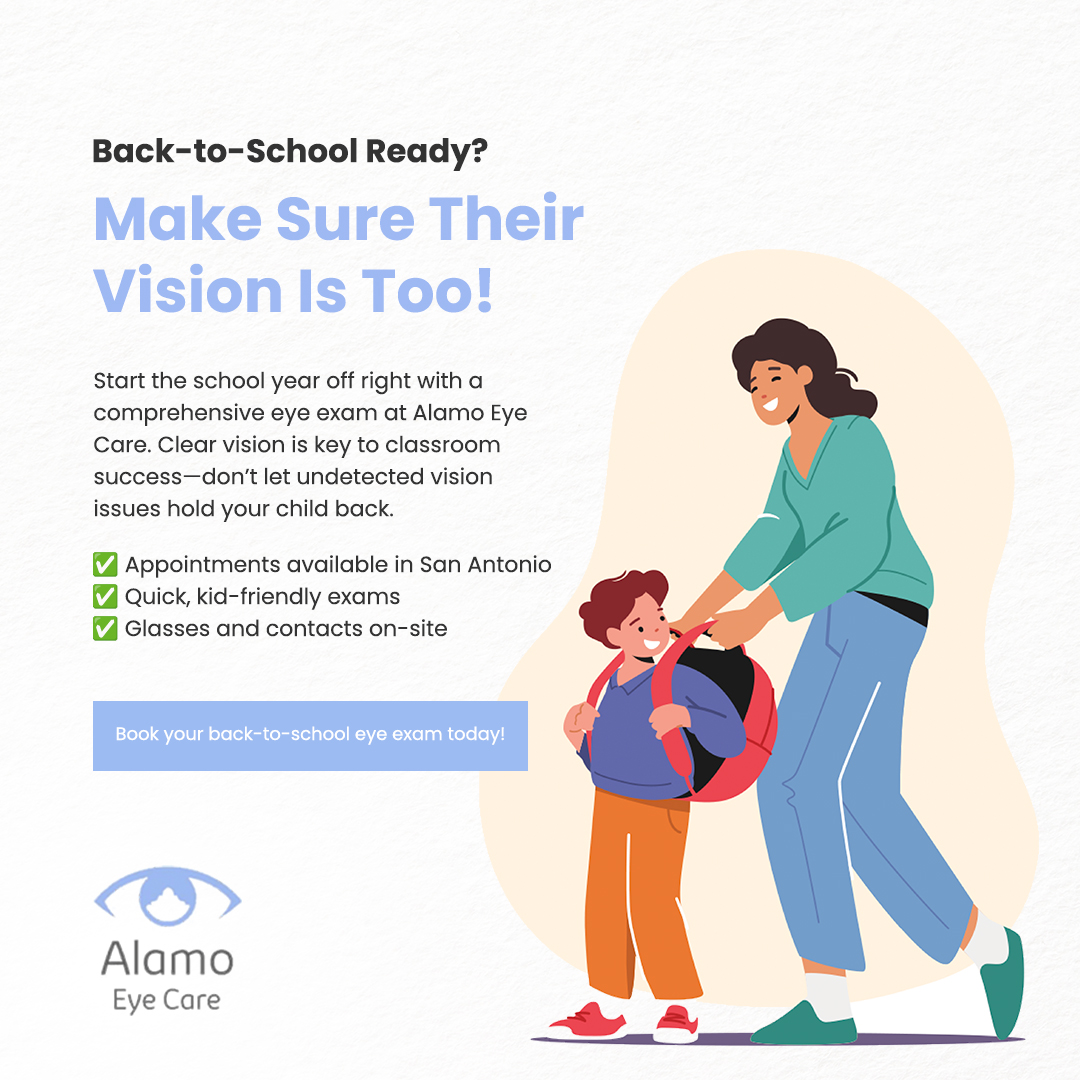Alamo Eye Care Blog
Learn more about optometry care in our blog!

Keratoconus is a progressive eye condition in which the cornea, the clear front part of the eye, thins and bulges into a cone-like shape. This irregular shape can cause significant vision problems, including blurred and distorted vision, sensitivity to glare and light, and difficulty driving at night.

Maintaining healthy vision is a crucial aspect of a child's overall well-being and development. As a parent, you play a vital role in ensuring your child's eyesight is properly cared for. One innovative vision correction option that has gained significant attention in recent years is Orthokeratology, or Ortho-K for short.

Scleral contact lenses have revolutionized the world of vision correction, offering a versatile solution for individuals with various eye conditions. While their primary function is to correct refractive errors, such as nearsightedness and astigmatism, these lenses have proven to be an invaluable tool for a wide range of other purposes.

Dry eye is a common condition that affects millions of people worldwide. It occurs when the eyes do not produce enough tears or when the tears evaporate too quickly. This can lead to a range of uncomfortable symptoms, including dryness, irritation, redness, and even blurred vision. Dry eye can be caused by a variety of factors, such as aging, hormonal changes, environmental conditions, and certain medications.

When your eyesight is at stake, understanding the conditions that can affect it becomes paramount. Glaucoma is one such condition that might not show symptoms until it's too late. It is often referred to as the "silent thief of sight" due to its subtle onset and progressive nature. This condition can lead to irreversible damage to the optic nerve, which is vital for vision. Your awareness and knowledge about glaucoma are essential for early detection and management, potentially saving your sight.

Dry eye is a condition that continues to affect a growing number of people. As research advances, so do the treatments available. Punctal plugs have already shown great promise as a means to provide relief for those who suffer from dry eye, and their role in treatment plans is likely to expand.

Achromatopsia is a non-progressive and hereditary visual disorder that severely impairs color vision. Albinism is a genetic condition characterized by a lack or low production of melanin, the pigment that gives color to your skin, hair, and eyes. If you're living with achromatopsia or albinism, prosthetic iris colored lenses could be a game-changing solution for you.

Understanding age-related macular degeneration and recognizing its early signs are the first steps towards managing this condition. It's a leading cause of blindness in seniors, and early detection plays a key role in maintaining vision and eye health.

Dry eye disease is becoming increasingly common, affecting millions of people worldwide. This chronic condition can significantly impact your life, sometimes making even the smallest of tasks seem difficult. If you have eye pain, blurry vision, and dry or watery eyes, it could be a sign that you have dry eye disease. But don’t worry! With an in-depth eye exam, our team can assess your vision and eye health to get you the treatment you need.

Eye inflammation can occur due to various reasons, and it can affect different parts of the eye. It can be irritating, uncomfortable, and disruptive, but with the right knowledge and care, it's often manageable and treatable. The most important thing to remember is that our eyes are delicate organs, and they deserve our utmost care and attention.







